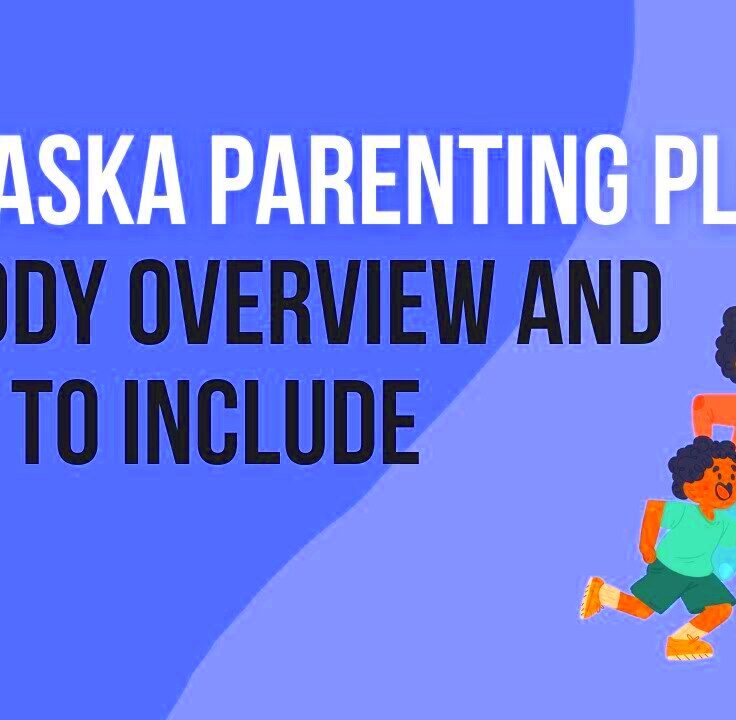Nebraska Family Law Explained
Nebraska family law covers legal matters related to family relationships, such as divorce, child custody, and adoption. Understanding this area of law is essential for anyone navigating family-related issues in Nebraska. The laws are designed to protect the interests of all family members, particularly children, ensuring their well-being and stability during transitions.
Understanding Divorce Laws in Nebraska

Divorce laws in Nebraska can be complex, but knowing the basics can help ease the process. Here are some key points:
- Grounds for Divorce: Nebraska allows both fault and no-fault divorces. No-fault divorces are based on irreconcilable differences.
- Filing for Divorce: One spouse must file a complaint in the district court of their county. The other spouse will receive a summons.
- Waiting Period: Nebraska has a minimum waiting period of 60 days after filing before the divorce can be finalized.
- Legal Representation: It’s advisable to hire an attorney familiar with Nebraska family law to navigate the process effectively.
Overall, understanding the divorce process can significantly impact the outcome and ensure that your rights are protected.
Child Custody and Visitation Rights

When parents separate, determining child custody and visitation rights is crucial. Nebraska law prioritizes the best interests of the child, leading to fair and reasonable arrangements. Here’s what you need to know:
- Types of Custody: There are two types of custody in Nebraska:
- Legal Custody: The right to make significant decisions about the child’s upbringing.
- Physical Custody: Where the child lives and spends their time.
- Joint Custody: Courts often favor joint custody, allowing both parents to share responsibilities and time with the child.
- Visitation Rights: If one parent has sole custody, the other parent typically receives visitation rights, which can be flexible or structured depending on circumstances.
- Modifications: Custody arrangements can be modified if there are significant changes in circumstances.
In all cases, the child’s best interests are the primary concern. Consulting a family law attorney can help ensure that your custody and visitation rights are adequately represented.
Child Support Guidelines in Nebraska

Child support in Nebraska is designed to ensure that children receive the financial support they need from both parents, regardless of their living arrangements. Understanding the guidelines can help parents navigate this crucial aspect of family law. Here’s a quick overview:
- Income Shares Model: Nebraska follows the income shares model, which calculates child support based on the income of both parents and the number of children involved. This model aims to ensure that children receive a level of support similar to what they would have if their parents were together.
- Child Support Obligation: The obligation is determined using a guideline table that takes into account the combined income of both parents. It specifies the amount each parent is responsible for contributing.
- Additional Expenses: Besides basic support, parents may also share additional expenses such as healthcare, childcare, and educational costs. It’s essential to address these in the child support agreement.
- Modification: Child support can be modified if there are significant changes in income, employment status, or the needs of the child. A court must approve any modifications.
Remember, child support is not just a legal obligation but also a way to ensure the well-being of your child. Keeping open communication with the other parent can help facilitate a smooth arrangement.
Property Division During Divorce
When a couple divorces in Nebraska, dividing property can be one of the most contentious issues. Nebraska follows the principle of equitable distribution, meaning property will be divided fairly but not necessarily equally. Here’s what you should know:
- Marital vs. Non-Marital Property: Only marital property, acquired during the marriage, is subject to division. Non-marital property, such as gifts or inheritances, usually remains with the original owner.
- Factors Considered: Courts consider various factors when dividing property, including:
- The length of the marriage
- The contributions of each spouse (financial and non-financial)
- The economic circumstances of each spouse
- Any custodial arrangements for children
- Property Settlement Agreements: Couples can negotiate their own settlement agreements, which the court may approve as long as they are fair.
Understanding these principles can help you prepare for discussions about property division. Having a skilled attorney can also make a significant difference in reaching a fair outcome.
Spousal Support or Alimony Explained
Spousal support, commonly known as alimony, is a financial arrangement where one spouse supports the other after divorce. In Nebraska, alimony is not guaranteed and depends on several factors. Here’s a closer look:
- Types of Alimony: There are generally three types of alimony in Nebraska:
- Temporary Alimony: Paid during the divorce proceedings to maintain the standard of living.
- Rehabilitative Alimony: Support provided for a specific period to help the receiving spouse become self-sufficient.
- Permanent Alimony: Given when one spouse may not be able to become financially independent due to age or disability.
- Factors Influencing Alimony: Courts consider several factors when determining alimony, including:
- The length of the marriage
- The financial needs and resources of both spouses
- The standard of living during the marriage
- Each spouse’s age, physical condition, and earning capacity
- Modification and Termination: Alimony can be modified based on changes in circumstances, such as a job loss or a significant increase in income. It typically ends upon remarriage of the receiving spouse or death of either party.
Understanding alimony can help you plan for your financial future after divorce. Consulting with a knowledgeable attorney can provide clarity and support throughout the process.
Domestic Violence and Legal Protection
Domestic violence is a serious issue that can affect anyone, regardless of age or background. In Nebraska, laws are in place to protect victims and ensure their safety. Understanding your options is crucial for anyone experiencing domestic violence. Here are some important aspects:
- What Constitutes Domestic Violence? Domestic violence can include physical abuse, emotional abuse, stalking, and harassment. It’s vital to recognize that any form of intimidation or control can be considered abuse.
- Legal Protection: Victims can seek protection orders (also known as restraining orders) against their abusers. These orders can:
- Prohibit the abuser from contacting or coming near the victim.
- Grant temporary custody of children.
- Allow the victim to remain in the family home.
- How to Obtain a Protection Order: To get a protection order in Nebraska:
- File a petition in the district court.
- Provide evidence of abuse or threats.
- Attend a court hearing, if required, where both parties can present their cases.
- Resources and Support: There are numerous resources available for victims, including shelters, hotlines, and legal assistance. Local organizations can provide immediate support and guidance.
Remember, you are not alone. Seeking help is a strong step toward regaining control over your life.
Frequently Asked Questions about Nebraska Family Law
Family law can be confusing, and it’s common to have questions. Here are some frequently asked questions that might help clarify some concerns:
- What is the process for filing for divorce? To file for divorce, one spouse must submit a petition to the district court. The other spouse will be served with the paperwork and will have an opportunity to respond.
- How is child custody determined? Custody is decided based on the best interests of the child. Courts consider various factors, including the child’s needs and each parent’s living situation.
- Can child support be modified? Yes, child support can be modified if there are significant changes in circumstances, such as job loss or a change in the child’s needs.
- What if I can’t afford an attorney? If you can’t afford an attorney, there are legal aid organizations in Nebraska that can help low-income individuals with family law issues.
If you have specific questions, consulting with a family law attorney can provide tailored guidance and support.
Conclusion on Nebraska Family Law
Nebraska family law encompasses various issues, including divorce, child custody, and domestic violence. Understanding these laws is essential for navigating family-related challenges. Remember, the law aims to protect the rights and well-being of all family members, especially children. Whether you’re facing a divorce or dealing with custody arrangements, seeking legal advice can make a significant difference.
Ultimately, knowing your rights and options empowers you to make informed decisions. Don’t hesitate to reach out to a qualified family law attorney for guidance tailored to your situation. With the right support, you can navigate the complexities of family law and work toward a brighter future.


